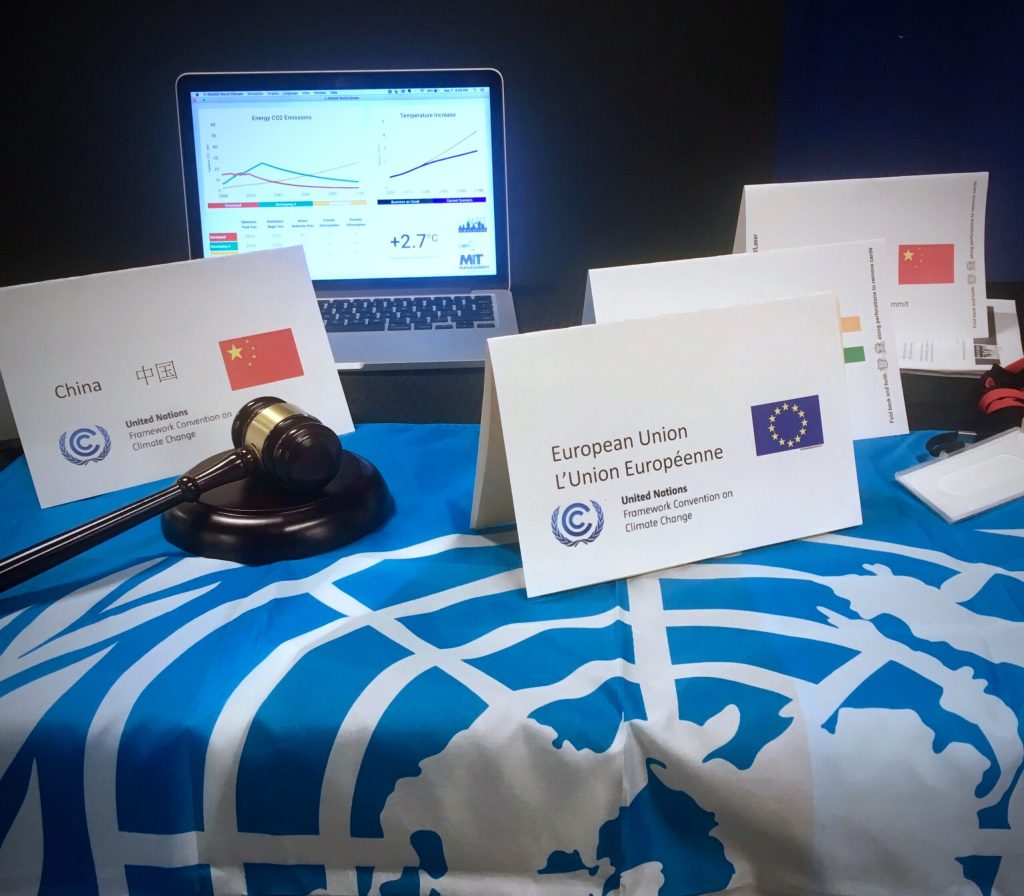The World Climate Simulation, from Climate Interactive, the MIT Sloan Sustainability Initiative, and the UMass Lowell Climate Change Initiative, is an in-person role-playing exercise of the UN climate change negotiations. Through the simulation, participants get to explore the necessary speed and level of action that nations must take to address global climate change. At the heart of the experience is the use of the interactive C-ROADS simulator, which is used to rapidly analyze the results of the game play.
